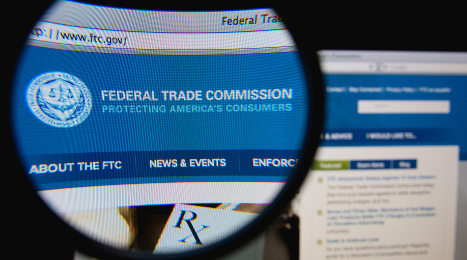Sometimes that vehicle you delivered just turns out to be a lemon. Los Angeles-based law firm Consumer Law Experts conducted a study to find out how often lemons are rolling over the curb and which automakers manufactured those units.
The firm also made a recommendation on the role dealerships can play to prevent the situation from developing into a legal quagmire impacting everyone involved.
Attorneys searched electronic court filings nationwide to see which automakers had the most lemon law cases filed against them from 2013 through 2016. Consumer Law Experts compared the litigation results to the total U.S. sales for each manufacturer over the same time period.
Out-of-court settlements were not included in the study, the law firm said in a news release announcing its findings.
Consumer Law Experts determined Toyota was the major automaker found least likely to defend themselves in court over a lemon law case with one adverse result per 60,926 vehicles sold in America.
According to Consumer Law Experts, a consumer is eight times more likely to be hit by lightning over a lifetime than to go to court with Toyota on a lemon law claim.
At the other extreme, the firm found BMW was 30 times more likely than Toyota to sell a consumer a defective vehicle. Firm lawyers said they saw a lemon law case filed against BMW once for every 2,021 vehicles sold in the U.S. in 2013 through 2016.
The study showed Ford’s fortunes were not much better, with a lemon law courtroom loss occurring once for every 3,523 units sold. Consumer Law Experts pegged that likelihood as about the same odds that a baby will be born with a tooth.
Is a BMW or Ford vehicle really 20 or 30 times more likely to be a lemon than a Toyota? Probably not, according to Jessica Anvar, managing partner of Consumer Law Experts, a leading California lemon law firm.
“There are many reasons why some manufacturers are more likely to lose a warranty case than others,” Anvar said. “How the dealership resolves consumer complaints is probably the biggest factor.
“The best way to avoid a lemon law case in court is to make the customer happy at the first sign of a problem,” Anvar went on to say.
The National Automobile Dealer Association recently highlighted a new resource for members is now available: “A Dealer Guide to the FTC Used Car Rule.” Members can secure it through NADA University Online.
Association officials explained the material provides an overview of the revised Used Car Rule from the Federal Trade Commission, including details about the revised Buyers Guide, instructions on properly completing the Buyers Guide form, and with a number of templates and other examples.
The FTC finalized amendments to the Used Car Rule last November, noting seven specific modifications.
The guide is available to NADA and ATD members only at no charge by going through this website. Members needing assistance in accessing the guide should call NADA customer service at (800) 557-6232.
New York attorney general Eric Schneiderman reached settlements with 104 franchised and independent dealerships, according to an announcement released on Friday.
Empire State officials said vehicles were sold to New Yorkers without disclosing that the units were under recall for “dangerous unrepaired safety issues” such as unintended acceleration, airbag problems, vehicle fires, steering and brake loss and more.
New York’s top law enforcement official indicated the settlement also requires the dealers to provide consumers with advance notice of any existing and unrepaired recall, among other measures.
An investigation by the AG’s office identified dealers that advertised vehicles with unrepaired safety recalls, and officials monitored vehicles covered by safety recalls
As part of the settlements, the participating dealers are required to adhere to a set of guidelines in order to alert consumers that their vehicles may have unrepaired recalls, including the following:
• Dealers that advertise used vehicles online must include information that enables consumers to check the recall status of advertised vehicles; that information includes the SaferCar.gov website operated by National Highway Traffic Safety Administration.
• Dealers who advertise in print or other media must also disclose in the advertisement that the vehicle is subject to a safety recall.
• Dealers must place a decal notice in the window of used cars that include information that allows consumers to check the recall status of the vehicles, including the SaferCar.gov website and mobile application operated by NHTSA.
• Two days prior to any sale, dealers must provide consumers with a copy of the NHTSA recall status report for a vehicle with an unrepaired safety recall, and obtain a written acknowledgment from the consumer.
• Dealers must send notices to customers who have purchased vehicles with unrepaired safety recalls that are still unrepaired, from January 2016 to present. Manufacturers’ franchise dealers must also cover up to five days of a loaner car for consumers if their vehicle requires repairs that will take longer than one day.
Each dealer will also pay a fine of $1,000 to New York State.
“The safety recalls we uncovered were serious — and potentially deadly,” Schneiderman said. “Consumers deserve to know of any unresolved safety issues before buying a car for themselves or their family. I am pleased that thanks to our investigation and today's settlement, more New Yorkers will finally receive the critical safety information they need to make an informed decision.
“I encourage all auto dealerships across the state to follow our guidelines to ensure that they too uphold the highest standards of consumer safety. This is an important first step towards making all cars on New York’s roads safer,” he added.
The list of 104 dealerships is as follows, broken down by the AG regional offices that reached the settlements.
BINGHAMTON REGIONAL OFFICE – 15
1. Butler Auto Sales, Sidney
2. Chambers & O’Hara Truck Center, Sidney
3. North Norwich Motors & Trailer Sales, North Norwich
4. SHB Associates LLC (Serafini Nissan Volvo), Vestal
5. VanDervort Service Center, Vestal
6. Ridge Road Imports, Lansing
7. Milller Motor Car Corp., Vestal
8. Royal Ford, Royal Chrysler, Owego
9. Gault Auto Mall, Endicott
10. Gene Balmer’s Auto Sales, Elmira
11. Jeff Kies Auto Sales, Apalachin
BROOKLYN REGIONAL OFFICE – 2
1. Compass Luxor
2. Hamilton Avenue Auto Sales
BUFFALO REGIONAL OFFICE – 12
1. Basil Ford
2. SCGA Holdings, LLC DBA Castilone Chrysler Dodge Jeep & Ram
3. CrazyCheapCars
4. Northtown Automotive Companies
5. Landmark Chevrolet
6. Olean Class Cars
7. Ontario Sales
8. Pellegrino Auto Sales
9. Riverfront Auto Sales
10. Shults Management Group
11. Superior Auto Sales
12. V&A Enterprises, DBA Buffalo Auto Group
HARLEM REGIONAL OFFICE – 4
1. Best Auto Group, Bronx
2. Boston Road Best Motors, Bronx
3. New York Motors Group Solutions, Bronx
4. Manhattan Chrysler Jeep Dodge Ram, New York
NASSAU REGIONAL OFFICE – 1
1. LA Auto Sales
POUGHKEEPSIE REGIONAL OFFICE – 5
1. Hudson Valley Auto Sales
2. Ruge’s Automotive
3. Autos by Joseph
4. Frank Siena Auto Sales
ROCHESTER REGIONAL OFFICE – 16
1. Auction Direct USA
2. Best Value Auto
3. Cavallaro Neubauer Chevrolet Buick
4. Doan Buick
5. Doan Chevrolet
6. Doan Kia
7. Good Buy Auto
8. J & J Auto
9. Pioneer Truck Sales
10. Pool Auto Sales
11. Ralph Honda
12. Santa Motors
13. Stone Road Auto
14. Tiffany Transportation Services
15. Websmart Auto
16. Websmart Imports
SYRACUSE REGIONAL OFFICE – 25
1. Bill Rapp (2 Dealerships)
2. Bridgeland Auto Brokers
3. Cortland Used Cars
4. Liverpool World Car
5. Par-K Enterprises
6. TDK Property Company of Oneida,
7. TDK Property Co.
8. TRK-2 Operating Company
9. Tecforce Automotive, LLC
10. Drivers Village (13 Dealerships)
WATERTOWN REGIONAL OFFICE – (15)
1. FX Caprara Dealerships (14 Dealerships)
2. Waite Motor Sales
WESTCHESTER REGIONAL OFFICE (8)
1. JC Lopez Auto Sales, Port Chester
2. Croton Auto Park, Croton-on-Hudson
3. New Rochelle Chevrolet, New Rochelle
4. The Rivera Auto Group, Inc. d/b/a Rivera Toyota, Mt. Kisco
5. Rockland Motors, West Nyack
6. Rye Subaru, Rye
7. Saw Mill Auto Sales, Yonkers
8. Westchester Auto Exchange, Cortlandt Manor
Volkswagen absorbed significant monetary and reputation hits following controversy about emissions levels thrown by some of its diesel models. Kelley Blue Book senior analyst Alec Gutierrez considered the possibility Fiat Chrysler might face the same level of challenges since the automaker acknowledged it’s being investigated for a similar scenario.
Included in the automaker’s latest filing with the Securities and Exchange Commission, Fiat Chrysler admitted to receiving a variety of actions by state and federal regulators as well as civil matters.
The automaker said that on Jan. 12, the U.S. Environmental Protection Agency (EPA) and the California Air Resources Board (CARB) each issued a notice of violation (NOV) alleging that FCA failed to disclose certain emissions control strategies in its application for certificates to permit the sale of model year 2014 through 2016 Jeep Grand Cherokee and Ram 1500 diesel vehicles. The OEM indicated approximately 104,000 of these vehicles were sold in the United States, of which approximately 14,000 were retailed in California.
The filing also noted that the NOVs also state that the EPA and CARB are continuing to investigate whether any of these emissions control strategies are properly justified under the applicable regulations or constitute a “defeat device” as defined in the Clean Air Act.
“Following the issuance of the NOVs, a number of civil lawsuits have been filed,” Fiat Chrysler said in the filing. “We have also received various inquiries, subpoenas and requests for information from a number of governmental authorities, including the U.S. Department of Justice, the SEC and several states’ attorneys general.
“We are investigating these matters and we intend to cooperate with all valid governmental requests,” the automaker continued. We are currently unable to predict the outcome of any proceeding or investigation arising out of the NOVs or any related proceedings or investigation nor can we estimate a range of reasonably possible losses for the lawsuits and investigations because these matters involve significant uncertainties at these stages.
“Such investigations could result in the imposition of damages, fines or civil and criminal penalties,” Fiat Chrysler went on to say. “It is possible that the resolution of these matters may adversely affect our reputation with consumers, which may negatively impact demand for our vehicles and could have a material adverse effect on our business, financial condition and results of operations.”
In light of those acknowledgements, Gutierrez tackled what he called a “fair question” about whether Fiat Chrysler was heading down a difficult road that VW continues to navigate. He spoke when KBB and Autotrader conducted its monthly call with the media this past Wednesday.
“What we’ve seen in the past with these sorts of probes — if you look at VW for instance or you look at Toyota when they were being investigated for unintended acceleration — what we find is when there is a high-profile investigation or a crackdown on a manufacturer for one reason or another, unless it’s prolonged and sustained and you end up where there is a stop-sale put in place, again similar to what happened with VW with respect to their diesels and with Toyota when they voluntarily withheld sales of a few models while that was all being sorted out, unless you have that sort of scenario, you don’t see a pronounced and significant impact to overall sales volume,” Gutierrez said.
“I think consumers at the end of the day are still weighing the cost-benefit analysis of what they’re receiving in terms of value of the vehicle they’re purchasing versus the normal substitutes,” he continued. “If the price is right — and we know there are ample incentives available on a number of Chrysler products — the investigation alone will likely not be enough to influence consumer preferences and ultimately shopping behavior, again unless some sort of a stop-sale is put in place.”
Autotrader senior analyst Michelle Krebs added that she agreed with Gutierrez’s assessment. Krebs mentioned one other component involving Fiat Chrysler that might be important to its used-vehicle business, as well.
“Fiat Chrysler is finally doing what General Motors and Ford already have done and that’s taking down some of the numbers in the lower, less-profitable fleet sales,” said Krebs, while adding that February marked the second consecutive month of double-digit new-car sales declines for the OEM.
It happens every year. In January, the gym is full of people making New Year’s resolutions to lose weight or get in shape. But by February or March, the crowds have died down. Those who are still plugging away are committed to their resolutions. And their efforts have become a habit, making it easier to achieve their goals.
Making New Year’s resolutions are a great tool for achieving your business goals as well. Did compliance slide off your radar last year? Are you paying the price today, as you try to get those deal folders in order and send reports to lenders? With the 2017 business climate in question, now is a good time to make a few New Year’s resolutions. Let’s put compliance at the top of the list.
Upping your compliance quotient is a very achievable resolution. If you follow a few simple steps with each sale, then compliance will become a habit. And once it becomes a habit, your dealership will be in a better position to build profitability — both with customers and your lender partners.
Let’s start at the beginning by building a compliance culture. Compliance does not reside solely in the F&I office. From the moment a customer sets foot on your lot, calls your receptionist or researches a deal online, each team member who engages with the customer owns a piece of the compliance pie. Make sure every team member clearly understands their compliance roles. And make it a part of your employee reviews, weekly team meetings and quarterly sales goals. The more your team demonstrates good compliance behaviors, the faster it will become a habit.
Impress upon your team that compliance is not some fluffy HR strategy designed to boost sales by working harder on needless tasks. There are serious consequences when a dealership — and its employees — are found to be out of compliance. While not intended as a scare tactic, team members should be well aware of the repercussions to being out of compliance.
Now granted, there are a lot of details involved when it comes to compliance requirements. Not every team member needs to be an expert — nor do you want them to neglect their primary responsibilities. Consider designating a compliance officer — or compliance lead if your dealership has less than 10 employees. A compliance officer’s role is to have an intimate knowledge all of the requirements. And to serve as a guide for the other team members.
Habits are easily formed when tasks are performed the same way every time. Work with your compliance officer to create processes for each department that clearly guide team members through the necessary tasks. Allow a short period of time for each department to review those processes. Encourage team member feedback during the review period. Team members are more likely to establish good compliance habits if they have input on how each task is performed.
Processes also ensure that all tasks are performed the same way — regardless of which team member is performing the task. Make sure everyone is establishing the same habit.
Now that you have good processes in place and everyone is in agreement, document those processes. Remove any ambiguity or confusion by listing each task and the steps required. This step is critical – not only for longtime employees but for any new employees who join the team. Keep everyone on the same page by creating those documentation pages. And once the documentation is complete, don’t put it in a drawer to be easily forgotten. Out of sight-out of mind does not support a good habit. Keep your documentation visible and accessible.
As with any new habit, team members may forget or slip up every once in a while. Get back to the task by enforcing compliance. Remember, establishing compliant practices protects consumers, the dealership, and individual employees from any potential legal repercussions. During the process review period, discuss appropriate actions for process violations. Be sure to include those actions in the process documentation.
And speaking of new employees, a compliance discussion should be part of your hiring process. Is the candidate detail oriented with strong ethics and a team-focused mentality? Or are they willing to cut corners to make the sale — and boost their commission? Do they have a working knowledge of compliance criteria or will you need to provide training before they assume full responsibility for their job function? Do they support the spirit of compliance?
Do they have good habits? These types of behavioral questions can be invaluable when hiring new staff. Including compliance in your hiring process also demonstrates to your existing employees that you’re serious about the dealership’s compliance quotient.
So make some New Year’s resolutions for your business. Set some attainable goals. And make compliance a habit in 2017. For more information on creating a culture of compliance, watch my video series here.
Steve Roennau is the vice president of compliance EFG Companies.
ACA International sent a letter to the Federal Communications Commission last week asking the agency to revise a recently released consumer alert cautioning consumers against financial scams.
Officials explained the alert, issued by the FCC on Jan. 10, contains a subhead which states, “Beware of Debt Collection and Other Financial Service Scams, Especially During Post-Holiday Bill Paying Season.” ACA International insisted the alert then describes activity that is associated with debt relief companies, not debt collection.
In the letter, ACA International stressed that it makes clear that while the organization applauds the FCC’s efforts to protect consumers from the harms associated with “debt relief or refinancing” scammers, “the commission seems to confuse the debt relief market with the different debt collection market in the alert given the disconnect between the subhead and the body of the alert.”
ACA explained to the FCC that debt collection and debt relief services are completely different: they play different roles in the economy, they offer different benefits, they interact with consumers differently, and they are regulated in different ways. As a result, debt collection and debt relief are not synonymous and caution must be used to ensure each is being referred to and described in the correct manner to minimize confusion.
“For example, ACA pointed out that unlike debt relief services whose value to a consumer is unknown, the debt collection industry provides lenders with the latitude to continue extending credit to consumers, helps businesses that provide goods or services on credit remain solvent and prevents passing the costs of both monetary loss and risk on to consumers,” officials said.
ACA International also explained that debt collectors have enormous federal, state, and local compliance obligations that go well beyond the requirements applicable to the relatively new debt relief industry.
“Given the substantial differences between debt collection and debt relief services, and the lack of activity related to debt collection in the body of the alert, ACA strongly urged the FCC to modify the subhead to delete the reference to ‘debt collection,’” officials said.
“ACA believes this change is important to increase the clarity of the alert and to also reduce its current misleading nature,” they continued.
Risk management and training provider Recovery Industry Services Company (RISC) recently announced its 10th continuing education course is now available completely online with special 50-percent discount on registration.
The latest course covers anti-corruption/bribery matters as well as the Americans with Disabilities Act (ADA). The material is designed to benefit professional recovery agents and recovery agency owners in meeting current and future compliance mandates.
RISC went on to emphasize the new online course also will assist collateral recovery professionals in understanding how anti-corruption/bribery safeguards and ADA legislation affect a collateral recovery business, both in the field and in the office.
The CE 10 course is priced at $49 through Feb. 5.
“When choosing a continuing education provider, it’s vital to evaluate the program’s effectiveness in preparing collateral recovery professionals to be successful in the courts and on the streets,” said RISC president Stamatis Ferarolis, a licensed training instructor for collateral recovery specialists nationwide and co-author of the Field Recovery Specialist Operations Manual.
“For decades, the RISC team has been dedicated to developing compliance solutions exclusively for the collateral recovery industry,” Ferarolis continued. “Through education, training and technology, we prepare you for continued career growth in a rapidly evolving profession.”
The anti-corruption/bribery section of the course explains how to identify these criminal offenses and prevent them from occurring in a collateral recovery business. Ferarolis highly recommended that recovery agency owners ensure their employees receive ongoing, mandatory training specific to anti-corruption/bribery and that this training be documented.
The Americans with Disabilities Act Section of the course examines how this civil rights law prohibits discrimination against individuals with disabilities, including in the area of employment. The course material provides recovery agencies with guidance in formulating their corporate operational policies in compliance with federal law.
RISC’s continuing education courses are designed to meet current lender and Consumer Financial Protection Bureau (CFPB) compliance mandates in areas such as data security, field recovery procedures and the Uniform Commercial Code. The training provided is applicable in all 50 U.S. states and Puerto Rico.
Each course is offered online, including final testing, and a certificate of completion is issued upon successful completion of each continuing education course. Additionally, the newest material is accredited for eight hours of continuing education requirements in Louisiana.
To learn more about RISC’s continuing education programs and other services, e-mail [email protected], call (866) 996-7472 or visit www.RiscUS.com.
CarMax and two dealer groups have agreed to settle Federal Trade Commission charges that they touted how rigorously they inspect their used vehicles, yet the regulator claimed the dealers failed to adequately disclose that some of the vehicles were subject to unrepaired safety recalls.
The FTC indicated on Friday that the proposed consent orders will prohibit CarMax as well as Asbury Automotive Group and West-Herr Automotive Group from making unqualified inspection or safety-related claims about their used vehicles if any are subject to open, or unrepaired, safety recalls.
Also, following a public comment period, the FTC has approved final consent orders in similar cases against General Motors, Jim Koons Management, and Lithia Motors that were settled earlier this year. An Auto Remarketing report about that matter can be found here.
The FTC’s complaint against CarMax cites its claims about rigorous used-car inspections, including its “125-plus point inspection” and that its vehicles undergo, on average, “12 hours of renewing — sandwiched between two meticulous inspections.” The complaint also notes a TV commercial touting a team inspection and reconditioning, which included a message that appears for three seconds in tiny type at the bottom of the screen stating, “Some CarMax vehicles are subject to open safety recalls.”
Despite highlighting their inspections, the FTC alleged that CarMax failed to adequately disclose that some of the vehicles had open recalls. These recalls included defects that could cause serious injury, including the GM key ignition switch defect, as well as the Takata airbag defect.
Similarly, the FTC’s complaint against Asbury Automotive Group, which also does business as Coggin Automotive Group and Crown Automotive Group, alleged that the company made claims such as: “Every Coggin Certified used car or truck has undergone a 150 point bumper-to-bumper inspection by certified mechanics. We find and fix problems — from bulbs to brakes — before offering a vehicle for sale.”
However, as alleged, the FTC said Asbury advertised some certified used vehicles without adequately disclosing that some of the vehicles were subject to open recalls, including one that could cause fuel to leak and the engine to misfire or stall, and one that could cause a car to move in an unexpected or unintended direction.
The FTC’s complaint against West-Herr Automotive Group, the largest auto group in New York, cites claims about vehicles backed by the “West-Herr Guarantee” and touting a “rigorous multi-point inspection with our factory trained technicians.” However, the complaint alleged again that the company failed to properly disclose that some of the vehicles were subject to recalls for defects that could result in serious injury.
Under the proposed consent orders, CarMax, Asbury, and West-Herr are prohibited from claiming that their used vehicles are safe, have been repaired for safety issues, or have been subject to an inspection for safety-related issues, unless they are free of open recalls, or the companies clearly and conspicuously disclose that their vehicles may be subject to unrepaired recalls for safety issues and explain how consumers can determine whether a vehicle is subject to a recall for a safety issue that has not been repaired, and the claims are not otherwise misleading.
The proposed orders also would prohibit the dealers from misrepresenting whether there is or is not an open recall for safety issues for any used motor vehicle, whether they repair such vehicles, and any other material fact about the safety of the used vehicles they advertise for sale. The proposed orders also would require the companies to inform recent customers, by mail, that vehicles they bought as far back as July 1, 2013, may be subject to open recalls.
In a commission statement regarding the six auto recall advertising cases, the FTC noted that its orders “will help empower consumers to make more informed and safer purchasing decisions in a market that, absent a change in federal law, continues to include cars subject to open recalls.”
The FTC vote to issue the statement was 3-0.
The FTC vote to issue the administrative complaints against CarMax, Asbury Automotive Group, and West-Herr Automotive Group and to accept the consent agreements was 3-0.
The FTC will publish a description of each consent agreement package in the Federal Register shortly. The agreements will be subject to public comment for 30 days, beginning today and continuing through Jan. 17, after which the FTC will decide whether to make the proposed consent orders final.
Interested parties can submit comments electronically for CarMax, Asbury Automotive Group and West-Herr Automotive Group by following the instructions in the “Invitation To Comment” part of the “Supplementary Information” section.
The FTC vote approving the final consent orders against GM, Jim Koons Management and Lithia Motors, and letters to commenters was 3-0.
This week, the Cause of Action Institute filed a lawsuit in the U.S. District Court for the District of Columbia to compel the Consumer Financial Protection Bureau to provide records the agency used in formulating its rule to prohibit the use of mandatory binding arbitration clauses in financial services contracts.
Cause of Action Institute claims to be a non-profit, nonpartisan government accountability organization that “fights to protect economic opportunity when federal regulations, spending and cronyism threaten it.”
The organization insisted that prohibiting the use of third-party arbitration in financial contracts would subject numerous financial institutions to a flood of class action lawsuits, further burdening the courts and ultimately injuring consumers by increasing the costs associated with bank loans and other financial services. Officials added the CFPB’s proposed rule was largely based on a study commissioned by the agency in 2015.
“To issue a regulation affecting such a vast swath of the economy, and then attempt to conceal the bulk of the documents reflecting how that decision was made from public view, violates the law and the American people’s right to know,” Cause of Action Institute vice president John Vecchione said.
In April, the Cause of Action Institute filed a Freedom of Information Act (FOIA) request for records that would show how the agency conducted its study. Although CFPB produced some documents, the institute said the agency withheld a large number of responsive records and information.
In September, officials recapped that the CFPB issued a final determination, indicating the agency would withhold 1,877 pages of responsive records. The Cause of Action Institute appealed the CFPB’s determination and challenged each FOIA exemption the agency applied to the production.
Last month, the CFPB denied the appeal.
In its lawsuit, the Cause of Action Institute argues that CFPB is required to produce all responsive records not covered by a valid exemption.
“The burden is on the agency to justify the use of any exemption to withhold or redact information, which CFPB has failed to do,” the Cause of Action Institute said. “The lawsuit compels the agency to produce all records improperly withheld within 20 business days of the court’s order.
The full lawsuit can be found here.
The Federal Communications Commission Enforcement Bureau and the Canadian Radio-Television and Telecommunications Commission recently finalized a formal agreement, committing the two agencies to work together to combat what they deem to be unlawful robocalls.
Officials explained the Memorandum of Understanding represents the FCC’s commitment to working cooperatively with international regulators to combat robocalls and caller ID spoofing, which has been a tool some skip-tracers use that certain regulators have deemed to be abusive.
“Robocall scams are as much of a menace to American consumers as they are to Canadians,” Enforcement Bureau Chief Travis LeBlanc said. “We know that a lot of these calls originate from outside the United States. It is imperative that we work with our counterparts around the globe to quickly identify the origin of these calls and to shut them down at their source.”
Under the agreement, the two agencies agree to cooperate on enforcement matters related to unlawful robocalls and caller ID spoofing. These agencies have also committed to exchange information about investigations and complaints, share knowledge and expertise, provide information about legal theories and economic analysis, keep each other abreast of significant legal developments, and provide other appropriate assistance.
The regulators added this agreement follows on the heels of a similar memorandum of understanding that the Enforcement Bureau signed last June with members of the Unsolicited Communications Enforcement Network (formerly the London Action Plan). This coalition coordinates and promotes international cooperation and activities targeting unlawful communications like robocall and robotext scams.
“Members, like the FCC, share intelligence, identify common threats, learn from each other’s best practices, and assist each other with investigations where permissible,” officials said.
The new Memorandum of Understanding is available here.












